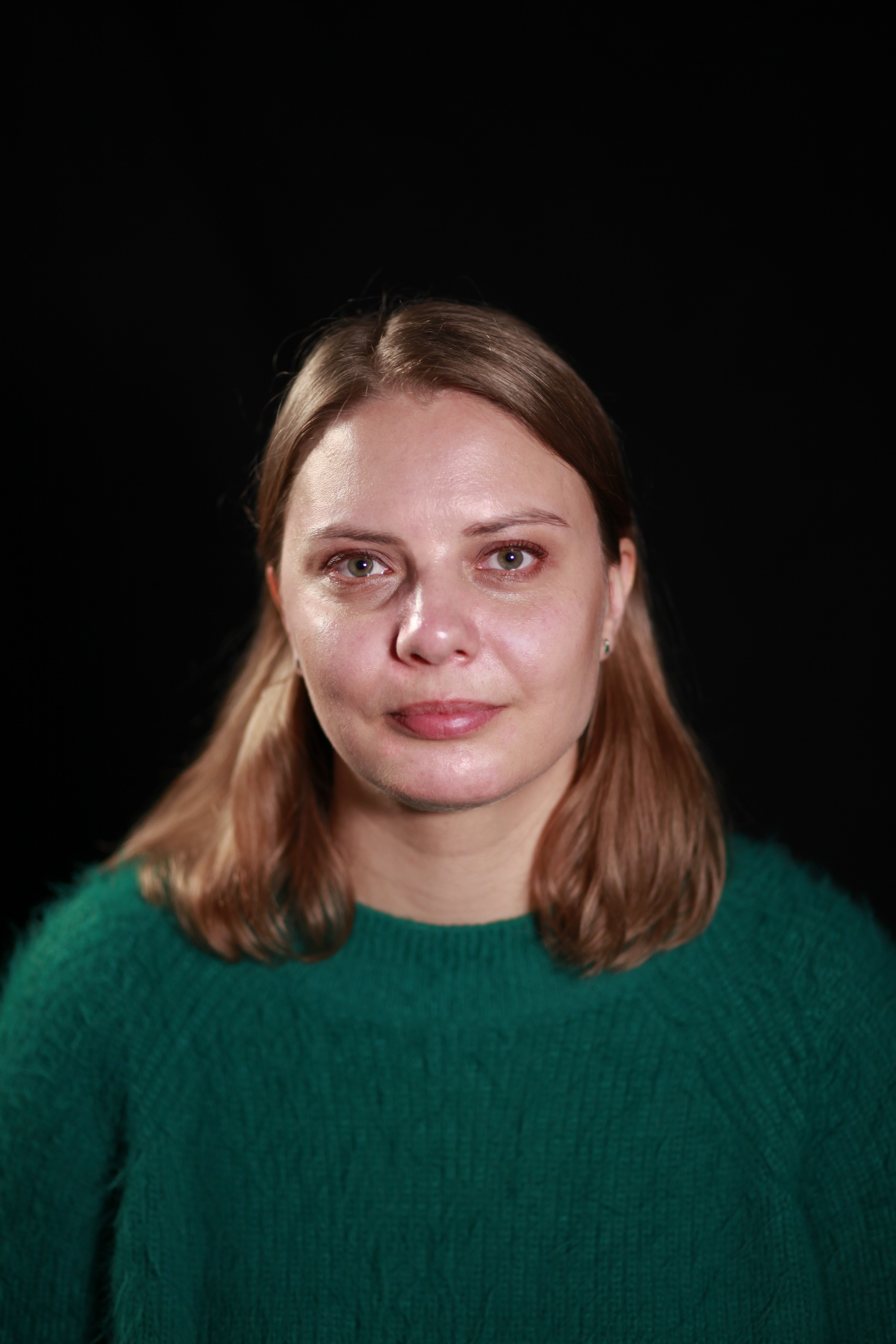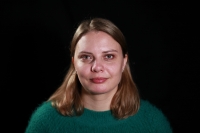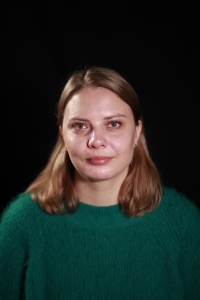"And at the end of [20]15, it started to take shape... 'Let's try to hold the first few pilot events.’ That is, we would not try to, although we already knew we wanted to, launch something big, but we did not know what to call it yet because we were not people ‘in the know’ and did not know other projects so well. There was some kind of hub, some kind of anti-cafe. And we were thinking of creating a series of entertaining and educational events, let's say: some psychology, some photography, something about the city, some role-playing board games, just for playing and getting to know each other better. And so many people showed up to these pilot events. The volunteer center was located in an old merchant's house at that time — an ordinary house with a few rooms, a kitchen, a bathroom, and an exit to the courtyard. And every room was filled to the brim with bulletproof vests, medicine, and other stuff, all of which had to be cleaned up — we had a team building event, I guess, to clean up stuff, to shuffle things around. And there was no proper heating there, and it was winter, February-March, early March. There was no reliable heating, there were power outages, and for the first two days of these pilot events, on top of that, we had... Well, we often have this kind of uncertain weather, like now in Lviv, when the sun shines in the morning, and in the evening, there is hail, black ice, and well below freezing temps. That's exactly what happened to us back then. On that day... on these two days, so many people came in that we could not fit them, and no one wanted to leave. No light, no heat — they keep sitting there, playing Jenga or Mafia, and you're like: ‘What's going on?’. And this was <…> the moment when I became a ‘we’ when this team had already given rise to something, and we had to move forward, and the scale was getting bigger and bigger and bigger. And it all came together. Got the same values because this is the foundation for volunteers, active citizens, people who came out in [20]14, people who support the causes that are important to me, who don't need a sit-down: ‘Oh, let's discuss our values before we can work together.’ I mean, you don't even have to talk it over, you just do something. And then it was such a big challenge, in terms of being kicked out of that volunteer center because it turned out that the premises were under seizure, there were some court proceedings, but we didn't know about it, we just rented it, and that was it. And we had to move very quickly, and then we organized a community workday <...> people moved all these shelves and all this stuff. We found a place in the nick of time, or rather, we were looking for it for a very long time and found it on the very last day. On the very day we had to move out, we found... or literally, in one day, Dima found a large room, enough to spread your wings, 350 square meters — here, you have a place for volunteering and a place for holding events, and this was the period of trying to do everything. We don't have furniture — ‘Let's make furniture out of pallets,’ we don't have a cleaner — ‘We'll clean up ourselves every night,’ we don't have a... I took on the role of... back then, I think the team called it an art manager — to do all the operations regarding filling the space, both what is needed for everyday life and events. For the week ahead, I had to come up with ideas, find people who could do something with us for free, for some kind of volunteer donation, and so on. And that's when this period began when you learn about all sorts of interesting things happening in the city. For example, someone... say, Varvara makes rag dolls and gives them away, sells them as collectibles, but she can also give a master class, and it's quite interesting. Someone teaches painting and... together with a guy from Britain, he lectures on a particular artist because he's an art critic. So, there you have an English language club, and you're painting something at the same time. This was when Mariupol began to flourish precisely because of people, not because of large and medium-sized enterprises, not because of the municipality, but because of people. And it was the period when donors took notice of Mariupol — the first to come in were, of course, USAID and European donors. It was a surge in the creation of various platforms. We were very proud at the time [that] ‘we actually started ourselves without any donors, and we pay our rent here on our own, look how cool we are.’ But still, it came to the point where... we had a constant need, even as simple as a place to put people in. I'm just looking at the photos from [20]16 or the video of Ukrainer, which came to us in the summer, after a couple of months of our opening, how it looked like then and how it looked five years later — so different in terms of visuals, style, content — oh yeah and the projector. Back then, we chipped in and bought a projector for 800 hryvnias, something so small and simple, and we needed... This is the former gym, and there are small skylight windows. And before the gym, interestingly enough, in this building, there were... It was a huge area, maybe not a district, but what they call a block, not far from my house, where there were various factories: a medical plant, medical equipment, manufacturing, some chemicals, and so on. And this is one of them, where my father's grandfather worked. On my dad's side, there was a dynasty that worked at this plant, but I found out about it later when we opened ‘Khalabuda’ [The Shack] there. And so, to turn on this projector... Mind you, big names started coming to Mariupol: Nestor group, Yevhen Hlibovytskyi, Mustafa Nayyem, and others, who were... famous people, and here we are: ‘Excuse us, we need to stack three pallets to close the skylight so that the projector can turn on.’ And it was like this... it was just like this [period of] building a shack when you have nothing, you find something somewhere, put it together, make it stick, and you have something."


